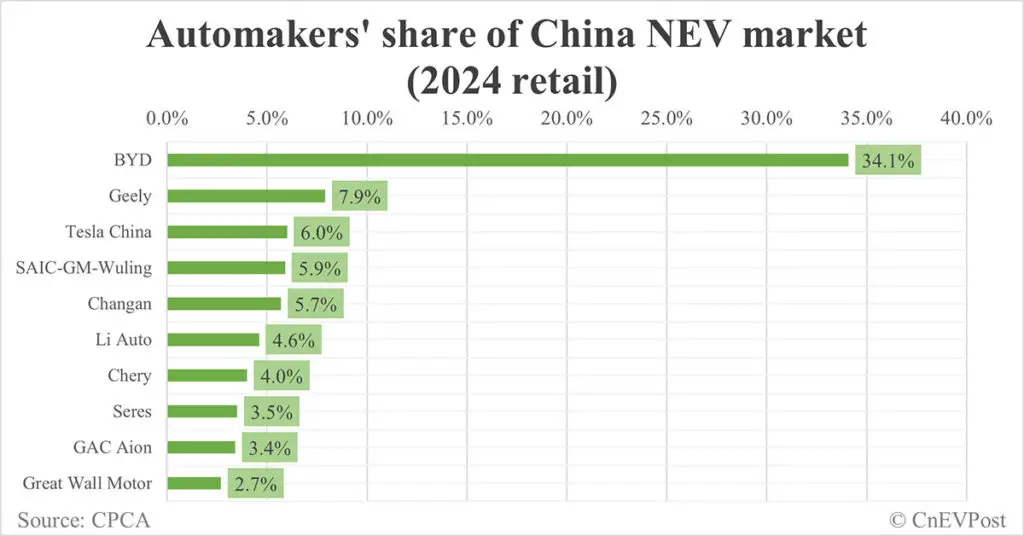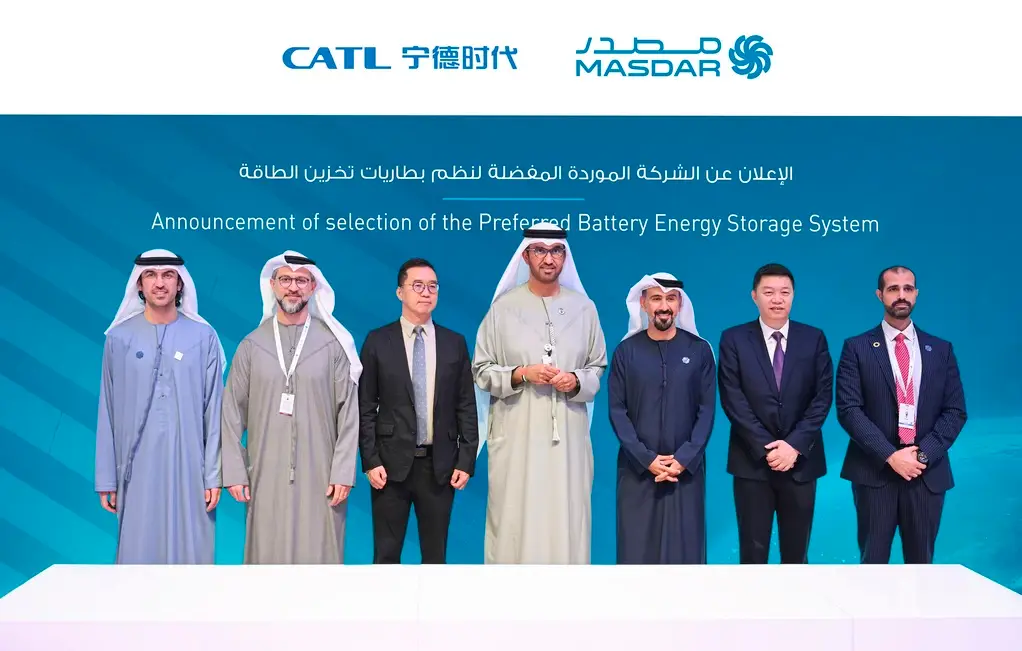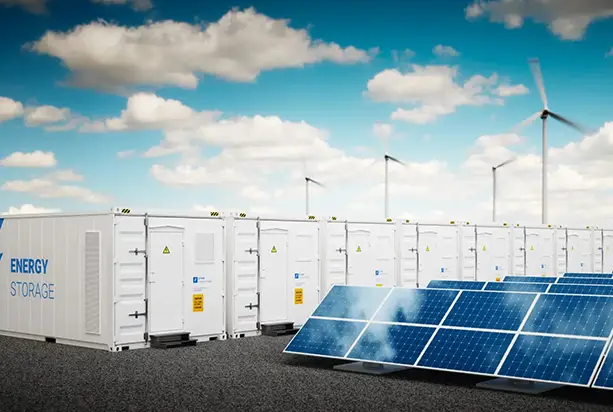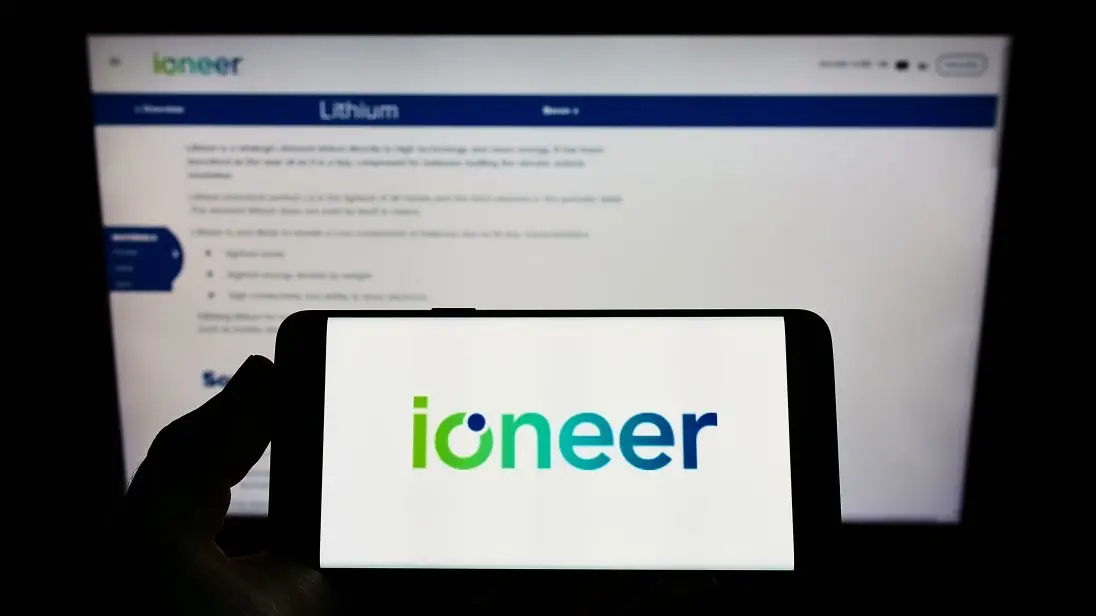In 2024, China’s new energy vehicle (NEV) market experienced significant growth, with BYD leading the sector by a substantial margin. According to rankings released by the China Passenger Car Association (CPCA), BYD achieved retail sales of 3,718,281 NEVs, securing a 34.1 percent share of the market. The company’s lineup includes both battery electric vehicles (BEVs) and plug-in hybrid electric vehicles (PHEVs), with PHEVs accounting for approximately 60 percent of its wholesale sales during the year.
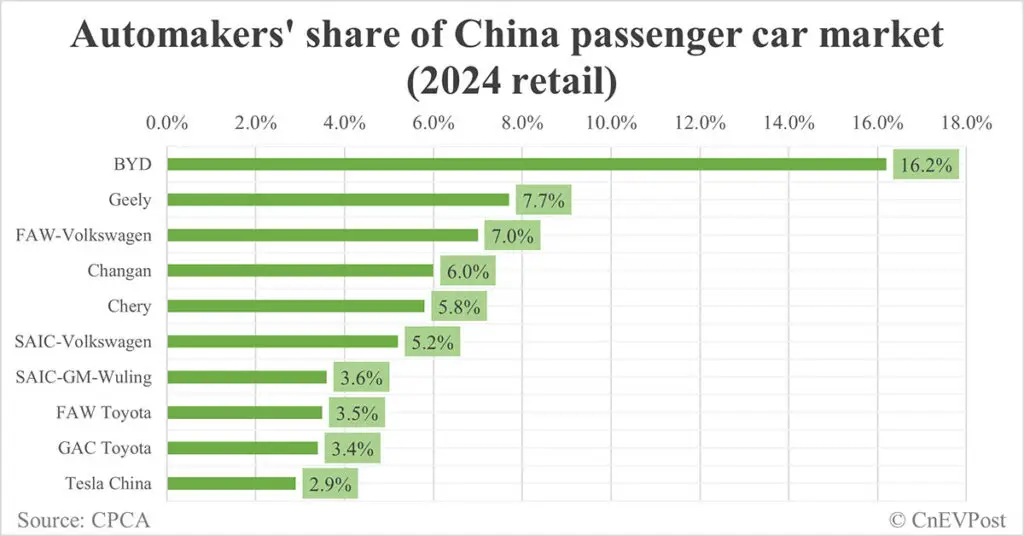
Geely Auto took the second spot in the NEV market, recording retail sales of 862,933 units and capturing a 7.9 percent share. Tesla, specializing exclusively in BEVs, ranked third with 657,102 units sold, representing a 6.0 percent share of the Chinese NEV market. Tesla is notable for being one of only two brands in the top rankings that produce solely pure electric vehicles; the other is GAC Aion, which secured the ninth position with a 3.4 percent market share.
SAIC-GM-Wuling claimed the fourth position, selling 647,047 NEVs and holding a 5.9 percent share of the market. Li Auto, a prominent local startup, emerged as the sixth-largest NEV seller with 500,508 units sold, accounting for a 4.6 percent market share. Li Auto stands out as the only startup automaker to appear in the top rankings, highlighting its rapid growth in the competitive NEV landscape.
When including sales of internal combustion engine (ICE) vehicles, Tesla ranked tenth in overall retail sales for 2024, with a market share of 2.9 percent. In December alone, Tesla maintained its tenth position in the broader automotive market, achieving a 3.1 percent share. Within the NEV segment for December, Tesla ranked fourth, delivering 82,927 vehicles and securing a 6.4 percent share of the monthly market.
These figures illustrate the dynamic shifts occurring in China’s automotive industry, particularly the accelerated adoption of new energy vehicles. Established manufacturers like BYD and Geely continue to dominate, while companies like Tesla and Li Auto make significant inroads. The data demonstrates a growing consumer preference for electric and hybrid vehicles, indicating a transformative period for automakers operating in the world’s largest automotive market.
Source: CNEVPOST

